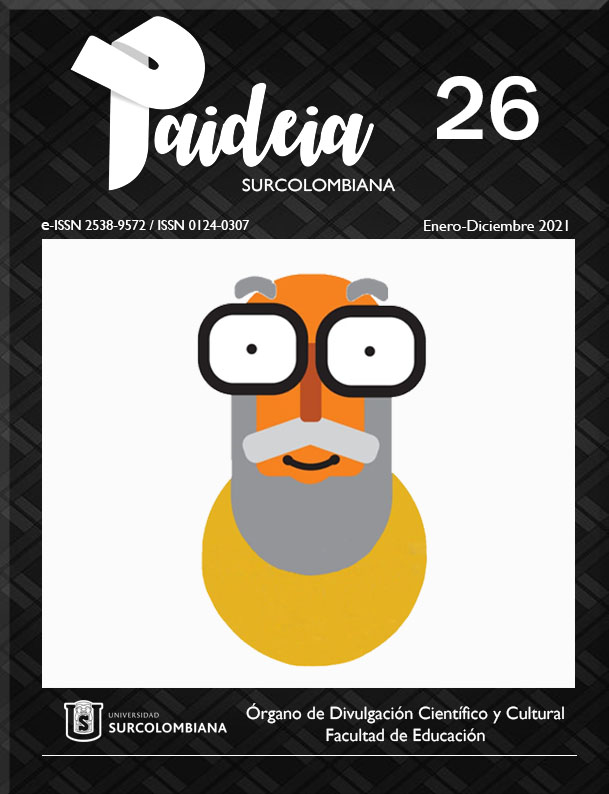Re-signification of Paulo Freire's thought in Pedagogical Praxis
##plugins.themes.bootstrap3.article.main##
September 19, 2021, commemorated the first centenary of the birth of one of the most influential pedagogues and educational philosophers of the twentieth century. This event unleashed a series of academic and cultural events worldwide in the media, popular organizations, educational institutions, and teachers, to exalt the memory and the work of the great Latin American teacher for his significant contribution to the development of Popular education that aims at the liberation of the oppressed.
For the Claretian Popular School (EPC), also known as Filodehambre and Complementary Formation Program (PFC) of the Escuela Normal Superior de Neiva (ENSN), it was impossible not to be linked to the celebration of such a great event, because these two experiences have been implementing the philosophical, pedagogical and methodological principles of Paulo Freire in their educational praxis, trying to decant a liberating pedagogical proposal with rural, urban marginal relevance and for inclusion. This is the main reason to socialize the outstanding aspects of the educational praxis that highlight the Freirean libertarian pedagogical thinking, thus impacting the lives of children and young people of the popular sectors of Neiva and Huila department, who attend these two schools, seeking to be valued and recognized as social subjects.
Downloads
##plugins.themes.bootstrap3.article.details##
Ardila, G. (2005). Ingeniería y territorio: Una relación política indisoluble. https://revistas.unal.edu.co/index.php/palimpsestvs/article/view/8059
Castro Gómez, S. (2010.) La hybris del punto cero. Bogotá
Colectivo Escuela Popular Claretiana. (1987). FILODEHAMBRE, una experiencia popular de innovación educativa. Bogotá: Presencia Ltda.
Colectivo Escuela Popular Claretiana. (2009). La participación en la escuela, Entretejiendo pasado, presente y futuro. Bogotá: Dimensión Educativa.
Colectivo de Trabajo Barrial. (1992). ORGANIZACIONES BARRIALES Y EDUCACIÓN POPULAR, experiencias organizativas en el sector suroriental de Neiva. Bogotá: Dimensión Educativa.
Contreras, A. (2018). Recordar el futuro, planificación de la comunicación desde la comunicación”. Neiva: Universidad Surcolombiana.
Freinet, C. (1977). Por una Escuela del pueblo. Caracas: laboratorio Educativo.
Freire, P. (2010). Pedagogía de la indignación. Madrid
Freire, P. (2006). El grito manso. Buenos Aires
Freire, P. (2004). Pedagogía de la autonomía”. Sao Paulo: Paz e Terra SA.
Giroux, H. (1997). Los profesores como intelectuales, hacia la pedagogía crítica del aprendizaje”. Buenos Aires: Paidos.
Ilich, I. (1985). La sociedad desescolarizada. México.
Mclaren, P. (1997). Pedagogía crítica y cultura depredadora. México.
Puigros, A. (2005). De Simón Rodríguez a Paulo Freire. Bogotá: Convenio Andrés Bello.
Piaget, J. (1971). Seis estudios de psicologia. Barcelona: Seix Barral
Serjé, M. (2011). El revés de la nación: territorios salvajes, fronteras y tierras de nadie., Bogotá; Uniandes.
Torres, A. (2005). Subjetividad y sujetos sociales en la obra de Hugo Zemelman. Bogotá: U. Pedagógica.














